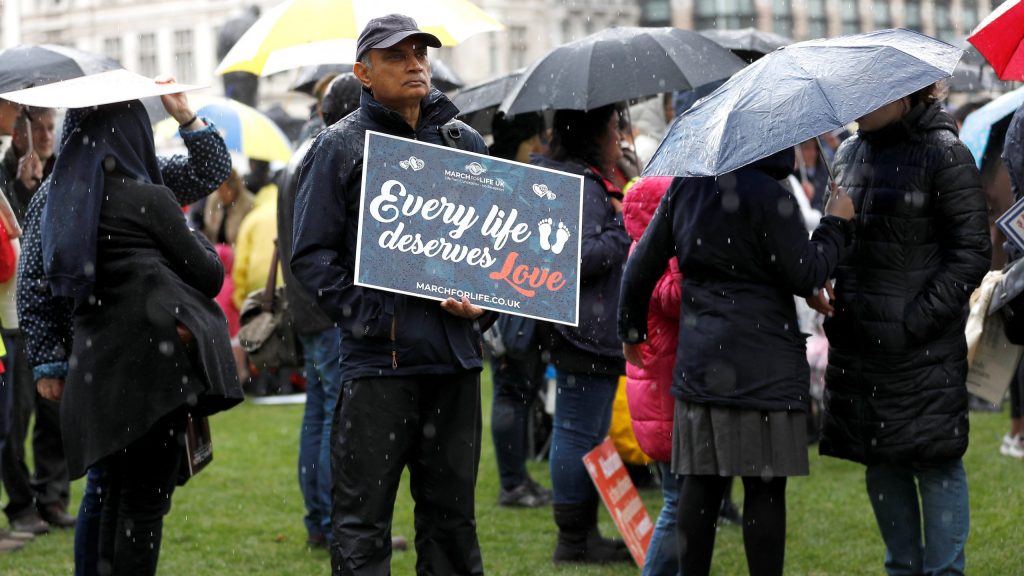The English bishops have expressed their shock at an emergency policy to allow "do-it-yourself abortions" during the coronavirus pandemic.
Auxiliary Bishop John Sherrington of Westminster said a change in the rules to allow the distribution of abortion pills in homes would "further endanger women" during a time of national crisis.
Under temporary measures announced March 28 to slow the spread of COVID-19, the government is waiving a legal requirement for women seeking abortions to visit two doctors before the procedure can go ahead.
Instead, women in the early stages of pregnancy are permitted to obtain abortions by taking two pills at home after consulting one doctor or other medical professional by "telemedicine," using such applications as Skype or Facetime.
But Bishop Sherrington, lead bishop for life issues for the Bishops' Conference of England and Wales, said in a March 30 statement that the policy was dangerous and should be rescinded.
"We recognize that the NHS (National Health Service) is under unique pressure," he said. "We understand why the government wishes to keep women away from hospital at this time but are shocked to hear that the Secretary of State for Health plans to introduce temporary measures to allow telemedicine and early DIY abortion at home without any medical supervision present."
He noted that, less than a week earlier, the government resisted pressure to change the rules that medical supervision was an "essential safeguard" of the health of women from possible complications arising from the use of the drugs.
"Why is it no longer essential?" said Bishop Sherrington.
He said: "These measures fundamentally change access to abortion in England and Wales for the foreseeable future. While these are emergency times, these measures further endanger women who, for example, are rushed into decisions by abusive partners and act without any proper consultation.
"They diminish the seriousness with which these decisions should be taken and the physical and psychological dangers of the administration of these drugs at home," he said.
In the days before the U.K. Parliament closed March 25 because of the pandemic, pro-abortion politicians attempted to amend the Coronavirus Bill, a raft of emergency legislation, to make it easier for women to obtain abortions, but the government resisted.
The emergency policy has since been introduced without public consultation, parliamentary scrutiny or debate, according to Right to Life, a pro-life group that has also described the move as "the biggest change to abortion provision since 1967," when abortion was legalized under certain conditions.
The policy will expire along with the other temporary emergency measures given force by the 2020 Coronavirus Act once the pandemic has passed.

